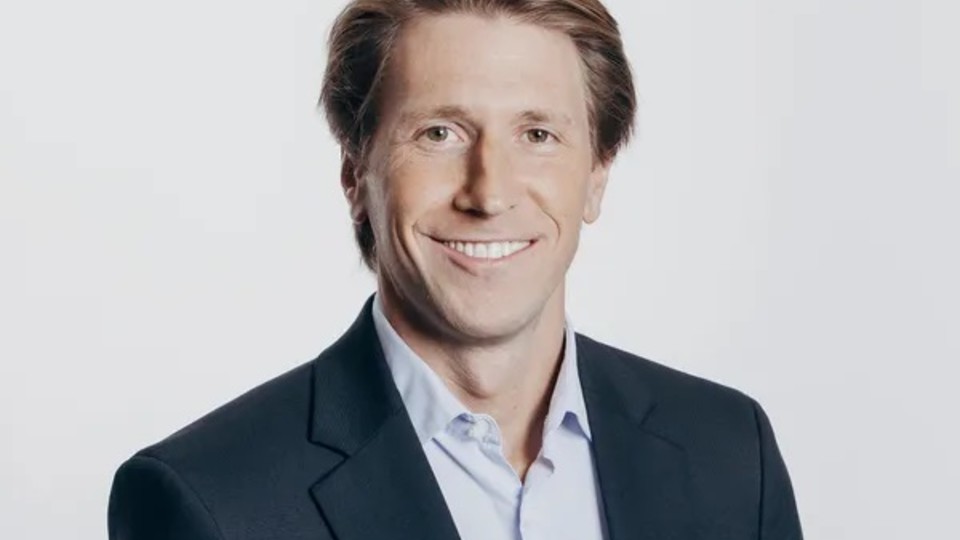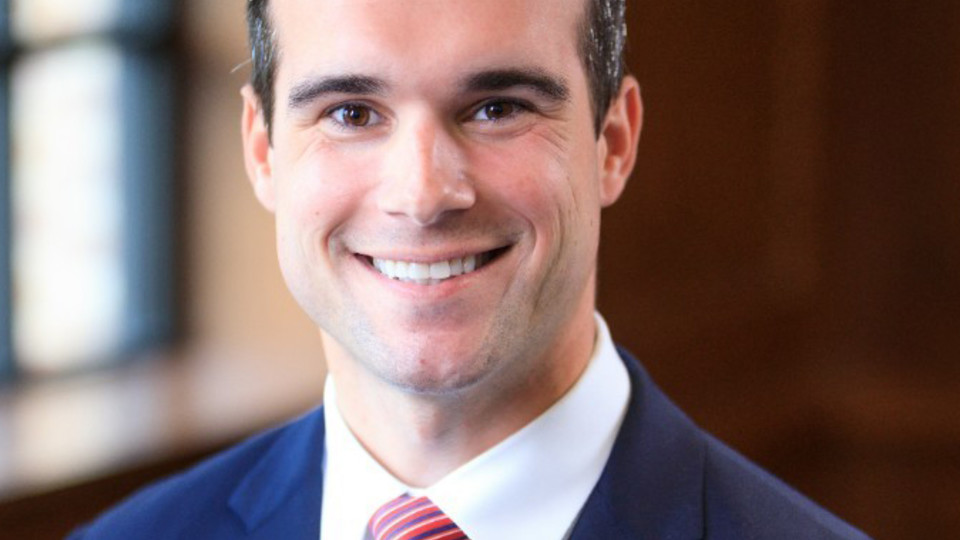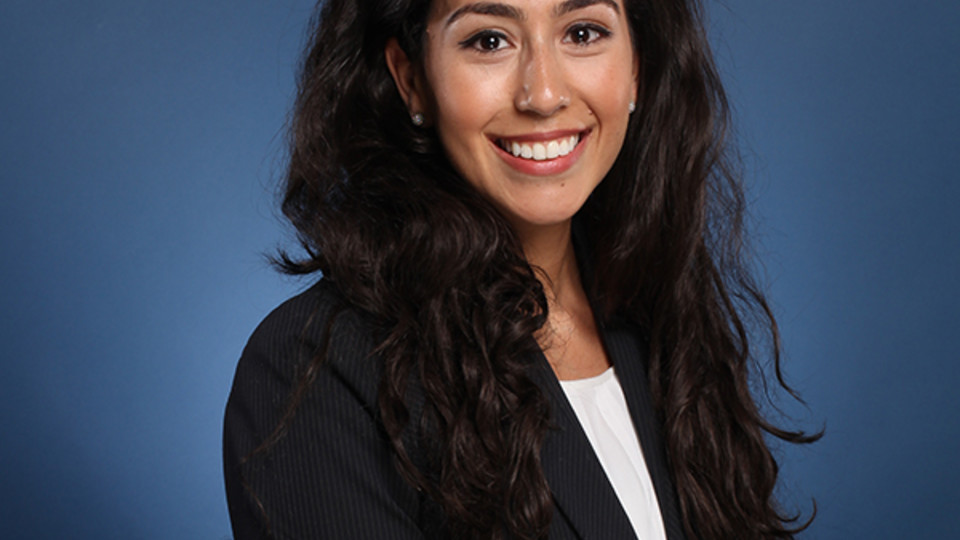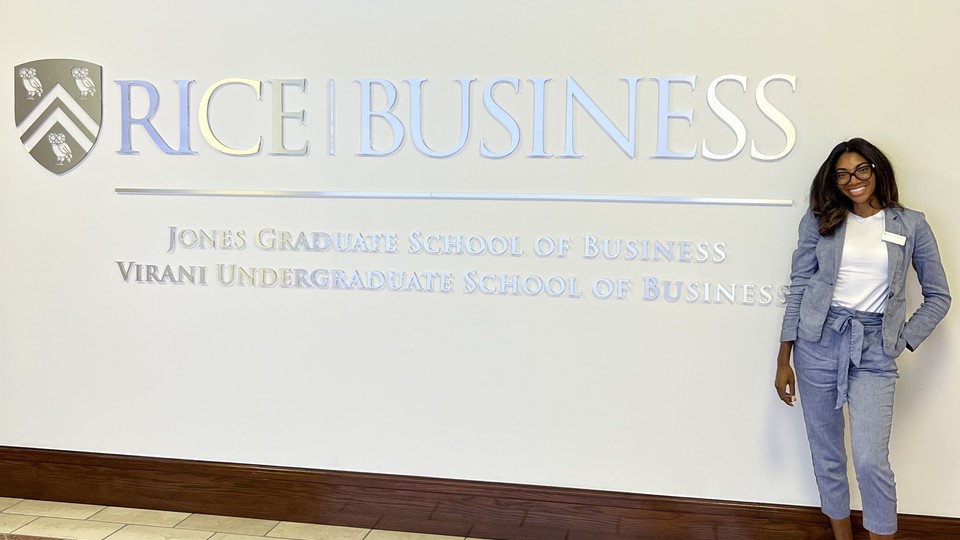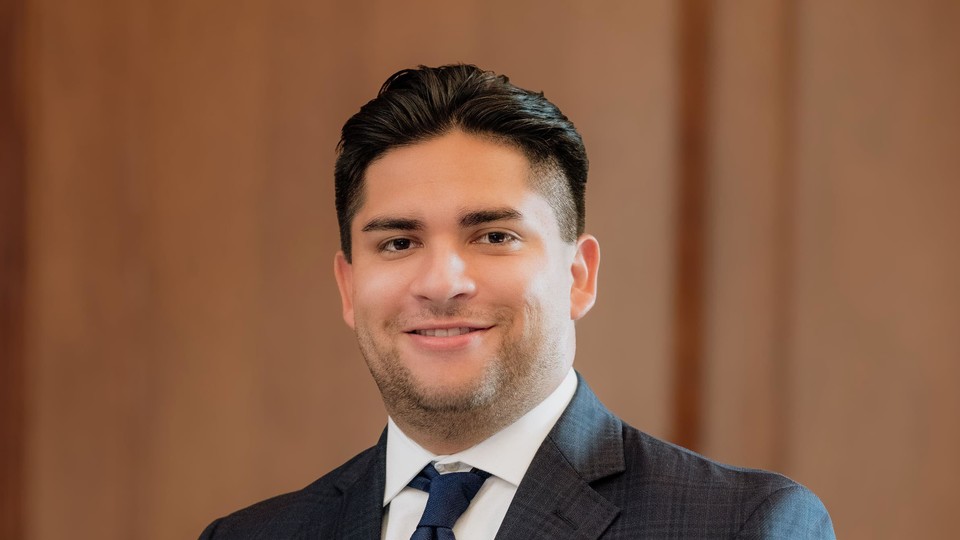How grocery data can help assess creditworthiness
How you shop and what you buy at the grocery store can predict whether you pay your credit card bills on time, according to new research by Rice Business professor Jung Youn Lee.

Turning Groceries Into Credit: A New Frontier in Lending
Grocery purchase data can accurately predict how likely people without a traditional credit score are to default on a loan.


Based on research by Jung Youn Lee (Rice Business), Joonhyuk Yang (Notre Dame) and Eric Anderson (Northwestern)
Key findings:
- Grocery purchase data can accurately predict credit risk for individuals without traditional credit scores, potentially broadening the pool of qualified loan applicants.
- Incorporating grocery data into credit risk assessments can expand a lender’s customer base by enabling them to approve more creditworthy applicants without traditional credit scores.
- While utilizing grocery data for credit decisions could improve access to loans, privacy concerns necessitate that consumers have the option to opt-in rather than be automatically enrolled.
Millions of consumers who apply for a loan to buy a house or car or start a business can’t qualify — even if they’re likely to pay it back. That’s because many lack a key piece of financial information: a credit score.
The problem isn’t just isolated to emerging economies. Exclusion from the financial system is a major issue in the United States, too, where some 45 million adults may be denied access to loans because they don’t have a credit history and are “credit invisible.”
To improve access to loans and peoples’ economic mobility, lenders have started looking into alternative data sources to assess a loan applicant’s risk of defaulting. These include bank account transactions and on-time rental, utility and mobile phone payments.
A new article by Rice Business assistant professor of marketing Jung Youn Lee and colleagues from Notre Dame and Northwestern identifies an even more widespread data source that could broaden the pool of qualified applicants: grocery store receipts.
As metrics for predicting credit risk, the researchers found that the types of food, drinks and other products consumers buy, and how they buy them, are just as good as a traditional credit score.
“There could be privacy concerns when you think about it in practice,” Lee says, “so the consumer should really have the option and be empowered to do it.” One approach could be to let consumers opt in to a lender looking at their grocery data as a second chance at approval rather than automatically enrolling them and offering an opt-out.
To arrive at their findings, the researchers analyzed grocery transaction data from a multinational conglomerate headquartered in a Middle Eastern country that owns a credit card issuer and a large-scale supermarket chain. Many people in the country are unbanked. They merged the supermarket’s loyalty card data and issuer’s credit card spending and payment history numbers, resulting in data on 30,089 consumers from January 2017 to June 2019. About half had a credit score, 81% always paid their credit card bills on time, 12% missed payments periodically, and 7% defaulted.
This could be a win-win scenario for both consumers and lenders. “People excluded from the traditional credit system gain access to loans,” Lee says, “and lenders become more profitable by approving more creditworthy people.”
The researchers first created a model to establish a connection between grocery purchasing behavior and credit risk. They found that people who bought healthy foods like fresh milk, yogurt and fruits and vegetables were more likely to pay their bills on time, while shoppers who purchased cigarettes, energy drinks and canned meat tended to miss payments. This held true for “observationally equivalent” individuals — those with similar income, occupation, employment status and number of dependents. In other words, when two people look demographically identical, the study still finds that they have different credit risks.
People’s grocery-buying behaviors play a factor in their likelihood to pay their bills on time, too. For example, cardholders who consistently paid their credit card bill on time were more likely to shop on the same day of the week, spend similar amounts across months and buy the same brands and product categories.
The researchers then built two credit-scoring predictive algorithms to simulate a lender’s decision of whether or not to approve a credit card applicant. One excludes grocery data inputs, and the other includes them (in addition to standard data). Incorporating grocery data into their decision-making process improved risk assessment of an applicant by a factor of 3.11% to 7.66%.
Furthermore, the lender in the simulation experienced a 1.46% profit increase when the researchers implemented a two-stage decision-making process — first, screening applicants using only standard data, then adding grocery data as an additional layer.
One caveat to these findings, Lee and her colleagues warn, is that the benefit of grocery data falls sharply as traditional credit scores or relationship-specific credit histories become available. This suggests the data could be most helpful for consumers new to credit.
Overall, however, this could be a win-win scenario for both consumers and lenders. “People excluded from the traditional credit system gain access to loans,” Lee says, “and lenders become more profitable by approving more creditworthy people.”
Anderson, Lee, and Yang (2024). “Using Grocery Data for Credit Decisions,” Management Science.
Never Miss A Story
You May Also Like
Keep Exploring
No credit score? A grocery list could be the next best thing
How you shop and what you buy at the grocery store can predict whether you pay your credit card bills on time, according to new research by Rice Business professor Jung Youn Lee.

Rice University reveals details of collaborative hub expected to open in the Ion later this year
For over a year, Rice has been planning its Rice Nexus, a collaborative hub for the university's innovation efforts located in the Ion District, Rice Management Company's 16-acre district in Midtown. Expected to open this fall, the new space will be located across 10,000 square feet on two floors of the Ion.

Best & Brightest Executive MBAs Of 2024
Congratulations to Ana Santos for being named one of Poets&Quants Best & Brightest Executive MBAs of 2024.
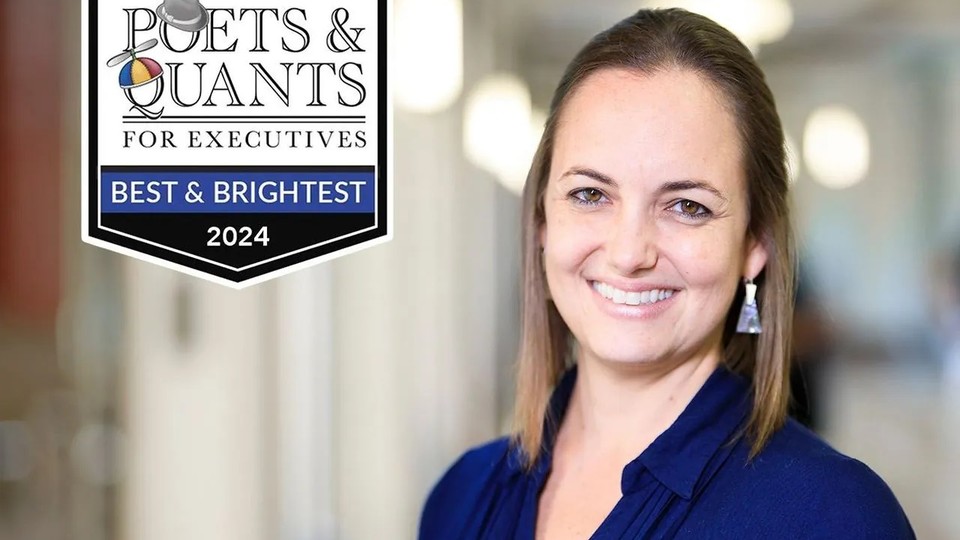
A Recipe for Success feat. Krissy White ’23
Season 4, Episode 21
Krissy joins host Maya Pomroy ’22 to talk about her singular career journey, from cutting her teeth in Dubai's hospitality industry to returning to Houston and pursuing her passion for pastries with her husband.
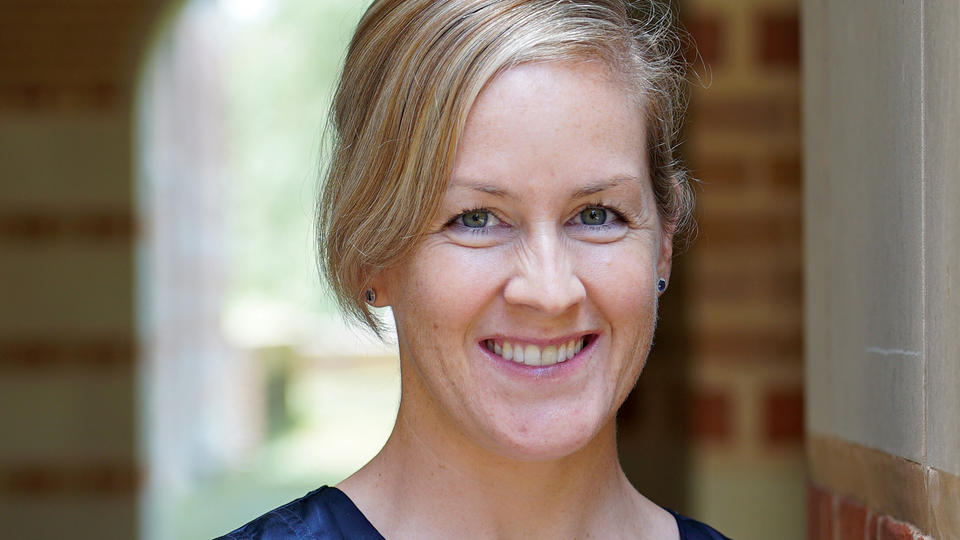
Owl Have You Know
Season 4, Episode 21
Krissy White '23 caught the hospitality bug after graduating from Northeastern University in 2006. She put her undergraduate degree in public & organizational communications to work immediately by joining the front office team of the St. Regis Hotel in Fort Lauderdale, FL.
Krissy spent the next eight years living and breathing the luxury hospitality life, working at Forbes 5 Star and AAA 5 Diamond distinguished properties. Later, she was promoted to progressively more challenging front-office leadership roles in Charlotte, NC, and Half Moon Bay, CA and Dubai.
Since returning to Houston in 2014, Krissy has worked in operational and human resources at LegalEASE, where she has advanced to executive vice president of operations. In 2019, after realizing the market was missing a true French bakery, she and her husband, pastry chef Otto Sanchez, opened Magnol French Baking in Spring Branch, Houston.
Krissy joins host Maya Pomroy ’22 to talk about her singular career journey, from cutting her teeth in Dubai's hospitality industry to returning to Houston and pursuing her passion for pastries with her husband.
Subscribe to Owl Have You Know on Apple Podcasts, Spotify, Youtube or wherever you find your favorite podcasts.
Episode Transcript
-
[00:00]Maya: Welcome to Owl Have You Know, a podcast from Rice Business. This episode is part of our Pivot Series, where guests share stories of transformation in their lives and careers.
Krissy White has always been willing to take exciting risks, and in doing so, led her to some of the most rewarding experiences life offers. The former collegiate swimmer talks with us about her recent dive into entrepreneurship as a second job. The Executive MBA doesn't shy away from taking on challenges of any kind.
She talks about her journey to the opposite side of the world while sharpening her teeth in the hospitality industry, her voyage back home, and pursuing a career as an executive vice president of operations in the legal field, and most recently, pursuing her passion for pastries with the love of her life.
Our guest today on Owl Have You Know is Class of 2023 Executive MBA, Krissy White. Hi, Krissy. How are you?
[00:58]Krissy: Hi, Maya. I'm great. Thank you.
[01:00]Maya: Well, we're thrilled to have you. You have just been out of the Executive program for a year now. How has it been? How has this year been that you're not hitting the books?
[01:11]Krissy: You know, it's funny when people ask me, “what do you do with all of your spare time,” and I'm like, “I don't think that I was ever taking time that was spare.” But it's been great, actually. So, my husband and I have an eight-year-old daughter and a five-year-old son. And so, I promised myself that I would spend all of the time that I was with school now over with them and their things.
And that's been a lot of fun. And then, professionally, we will get into this, I'm sure, but we'll be expanding Magnol French Baking to the second location in the winter of 2024. And then I have my other role as director of operations that is going well also. So, really finding ways to use what I learned at school personally and professionally, I think.
[02:06]Maya: So, you went from being busy to being busier, right?
[02:12]Krissy: I guess, when you put it that way, it's probably pretty accurate, yeah.
[02:17]Maya: Let's go back in time a little bit. So, you graduated from Northeastern University in Boston in 2006, and your focus was the hospitality industry, and that was really what your passion was. And you started at the St. Regis in Florida in ‘07.
Tell me, first of all, a little bit about your background and where you grew up and why you decided to go to Northeastern and what led you to the hospitality industry.
[02:44]Krissy: Yeah. Well, gosh, I haven't talked about this in a long time. So, I grew up outside of Boston, about 30 miles north of Boston, almost into New Hampshire. And I decided to go to Northeastern because I was a collegiate swimmer. I was a competitive swimmer that had been given a little bit of a scholarship to go and continue my athletic journey there.
And upon entering, I suffered an injury. So, that's, kind of, what led me to that school, but I also wanted to live in a city, and Boston was the closest one. So, that's what led me to that school. It was unique, that experience, because they spend one year going to school full-time, and then every year thereafter, of which there are four more, so it's a five-year program, students spend six months going to school and six months working full-time.
So, you can test out what profession you think might work for you. So, I tried radio DJ, I tried a whole bunch of different things. By the time I graduated with a communications degree, I actually, I didn't really know much about the hospitality industry at all. But I found it somehow, and then I decided, “All right, well, if I'm going to go into this, let me find the best in the world. Who's the best in the world at this? Like, let me surround myself with that.”
[04:18]Maya: Go big or go home, right?
[04:19]Krissy: Yeah. So, my younger brother was living down in Fort Lauderdale at the time, and there was this hotel that was opening. It was in the pre-opening stages, and it was the St. Regis in Fort Lauderdale, Florida.
And so, I applied as an operator, like, answering the calls from outside and answering the calls from inside when the guests would call down and they needed something. And that was my first job in hotels.
And then I had a pretty unique experience working there. I worked there for about two and a half years. And then the hotel was managed by the St. Regis hotel company, which was connected with Starwood. The gentleman who owned the asset of the hotel decided, “I would like a different brand to manage my hotel.”
And so, the St. Regis was out and the Ritz-Carlton was in. And I stayed along for that transition. And then about a year later, I was interested in other opportunities and the Ritz-Carlton being such a big company and owned by Marriott opened up a lot of possibilities. And there was another new hotel that was opening in Charlotte, North Carolina. So, I put my hat in the ring for that. And that became my first manager leadership role to move up to Charlotte.
[05:46]Maya: So, you went from, literally, fresh out of school to, boom, manager.
[05:54]Krissy: Yeah, I was in a supervisor role. But I mean, I've just always felt like leadership is where I belong. Like, when I was really young, I mean, like, young teenager, as I mentioned, I was a swimmer, I learned about this opportunity, which I laugh about now that I, kind of, like, had this instinct to do this and then ended up at business school, right? But I was a swimmer and I was, like, 13 or 14, and the Board of New England Swimming said, “Well, we need an athlete representative.” And I'm like, “That sounds like an amazing opportunity.”
And so, I got to sit in on board meetings every month. And I just thought it was the coolest, most exciting thing. And even as, like, a young, very young adult. So, yeah, I loved the fast-paced nature of hotels. I loved it. It didn't really matter how much… I don't want to say how much experience you have, but it's, kind of, like, if you're able to have your skills and your experience and your knowledge suit that environment and you really tap into all that emotional intelligence, then you can just be so wildly successful. And it was so fulfilling. It was incredibly fulfilling to manage a team, to interact with the guests with their very high expectations and try to meet and exceed those expectations, set up processes to make sure it was consistent. And all of those things fit in with the Ritz-Carlton really, really well.
And so, actually, the hotel up in Charlotte that we opened was like an all-star team. And the Ritz-Carlton, since they're a global organization, they have all of these ranking systems for, well, which hotel in the world is doing the best according to guest satisfaction surveys, like, at this part of the experience, at that part of the experience.
And the hotel I was working with was number one, like, off the charts in all of these categories. And it was just very exciting, very high performing team, and, yeah, my first opportunity to manage a team of about 50 employees. But then, actually, I decided about a year, a little over a year in, okay, this is very fulfilling professionally, but personally, I just feel like I've been dedicating everything to my job and my career. And is there anything more to it than this? Like, I should feel more, I should feel more complete by now, right?
[08:35]Maya: Something was missing. You felt that something was missing.
[08:39]Krissy: Yeah, I did. And I decided, well, maybe, I take myself off of this, I don't want to say, like, treadmill. I'm not sure which metaphor to use, but, you know, when there's, kind of, a plan that's set out for you in certain industries and you can stay on that path and you'll know exactly what the next step will be. I felt like, “I don't want my life to feel so predetermined.”
[09:00]Maya: You wanted to jump off of one train and get on another.
[09:03]Krissy: Yeah. So, I had always wanted to live in California, and not just California, but in San Francisco. And I don't know why, maybe it's because I'm from the Northeast. And so, it's total opposite. And I'm like, “That sounds like the best idea ever.”
I applied to go work at the Ritz-Carlton in San Francisco, like, in the actual city, on Nob Hill. And they were looking for a job for, like, a VIP club lounge manager. And the executive that was hiring for the role said, well, you're great, but you've never been here. And we need someone who really knows this city well.
My wife is the executive in my role at the Ritz-Carlton - Half Moon Bay. So, they have the same position open. Why don't you interview down there? And I thought, “Oh, well, okay, sure. That's fine.” So, I did and I saw pictures of this hotel and I was, like, “Oh gosh, I mean, this is just…” and it was the same role.
And I thought, “Okay, yeah, this is great. I can still live out in the world, in the land of wine and all great things that I know very little about.” So, I got that job and I moved out there sight unseen, except for the internet and then, in my, sort of, orientation class was this pastry chef. And I'm like, “Ooh, he's cute!”
[10:21]Maya: Oh, right. No, I know where this is going. I know where this is going.
[10:25]Krissy: Yeah. And, like, within a few, I don't know, how long was it? I mean, I don't know, eight weeks or so we had met and moved in and the rest is history. Yeah, the rest is history. And that's my husband, Otto. So, he was the executive pastry chef at that hotel.
And I was the club lounge manager and later became the front office manager there. And so, yeah, we just had, like, a beautiful beginning to our story together out there. It was the most magical place. And so, we decided, okay, well, should we, should we, like, have a baby or should we move to another country?
[11:10]Maya: I don't know, Dubai, like, let's go.
[11:12]Krissy: Those are, like, the only two logical options of things we could do next. So, we said, well, let's go live in another country because we're never going to have another chance to do this. And so, he got a job working at the Burj Al Arab, the big, fancy, you know, well-known hotel.
And then I secured a position in the front office with the same company, Jumeirah, that was based there. And that was a well thought out decision because I thought, well, I don't want to move to another country and then work for an organization that is based in the U S because I would, like, to have the most authentic experience possible working there.
And it was amazing. It was just, I mean, personally and professionally, like, eyes wide open, to the way that others live and eat and speak and behave and expectations are so different.
[12:09]Maya: In the UAE, for sure. Yeah, for sure, expectations. It's a very, I mean, obviously it's a different culture, but, the expectations, for sure, are…it's not as laid back, I don't think, as some places here. I think the expectation of service is a different league.
[12:27]Krissy: Yes, no doubt about that. And the guests are coming from all over the world. I mean, I had experience with that, but not at this level where guests would come and they were not interested in speaking English. They would speak whatever language they were most comfortable with. And so, we would hire employees depending on, like, the vacation schedule of people from around the world.
So, in the winter time, it was a big time for Russian guests. Because I think it was a Russian Orthodox, some kind of holiday. So, we would hire more Russian-speaking agents to assist them. And I, I had just never seen service be so tailored to, I mean, down to the extent that you're speaking, you know, the mother tongue of the guests that are coming through.
[13:20]Maya: That sounds incredible to be able to have that opportunity. And yes, you can certainly have a baby at some point, but this is something that you certainly needed to get underneath your belt before you decided to start a family. And were you looking worldwide, or was this really a place that you had pegged that you and Otto wanted to go?
[13:41]Krissy: Oh, that's such a good question. We learned that for hospitality, every city other than Dubai wanted you to have previous international experience. And so, Dubai was, kind of, the gateway to being able to live and work in other countries. Where we had our eye was Vietnam, Singapore, and we were told, “Well, you need some more experience for that.” And so, we put in our year and a half or so in Dubai and both he and I had these opportunities beyond, sort of, as a next step there in Dubai. And my mom was quite ill. She was going through some treatments for things here. And, I remember there was this one phone call and she's, like, I'm okay.
I just really, let's just talk later or something to that effect. And I was, like, “Yeah, she's not okay. And we shouldn't be over here anymore.” I mean, we were, kind of, looking for, should we go home and start a business or should we stay out here on the road forever until who knows when. And it was, sort of, a sign, I suppose.
And we said, “Okay, let's go. Let's go home.” So, we came back to Houston. And at that time we're back in Houston, my mom, thank God, she's well now.
[15:01]Maya: That's good. That's good.
[15:03]Krissy: And my husband, he starts to receive all of these messages on LinkedIn. “Hi, this is the (pick your luxury hotel) in Singapore and Vietnam and all these places.
And we're, like, “Oh no!”
[15:17]Maya: That time was, that time had come, right? It was, like, now Asia is ready for you, but you weren't ready for Asia.
[15:23]Krissy: Yeah. Maybe later Asia. Cause now we're doing this.
[15:26]Maya: So, you move back here to Houston in 2014, and so what happens next? So, you decide that maybe now's the time to start a family.
[15:35]Krissy: Yeah, so we moved back here to Houston and I thought, “Well, I have all of this experience with high expectation guests and satisfaction surveys and the medical hub of the world is in Houston, so surely this will be an easy transition for me into healthcare.” And everyone in the hospitals were, like, “Ah, you're going to need to start right there at the beginning.”
And I was, like, for the first time in my career, I was, like, “I can't start over again. I have international experience, like, there has to be something more.” So, an acquaintance of ours, through my husband, a friend of his, was saying well I work with this company called Legal Ease and it's growing pretty quickly.
It's a personal legal insurance company, like, a voluntary benefit, through your HR. And they just acquired Google as an account and they need someone who understands how to speak to a diverse group of people with high expectations to go out to Mountain View and speak to them and convince them to sign up for this great benefit.
Would you like to do that? Because we don't currently have someone who can and I was, like, “Yeah, that sounds interesting. Sure. I can do that. I'm not doing anything else right now.”
[16:50]Maya: I love that. You're just, “You know, what? Absolutely, I can do that, but I'm not starting from the beginning in the Texas Medical Center, like, no, negative to that one. I'll pass.”
[17:00]Krissy: Yeah, I just, I really wanted to, like, the common thread with the hospitality and Magnol and, all of, the insurance company I've been working for since then. And to this day I'm still working for now, has been…I just, in my own way, I want to help make the world a better place. And I would love to be able to feel like I'm doing that on a daily basis.
Now I'm, like, in senior leadership, and so there's a little bit less connection with the actual member that we're helping, but it's still there, and I'm able to make bigger differences on a larger scale, and work with a pretty large team here of, about a little over 100 team members.
And then of course when I'm over at Magnol being able to speak with the guests is, I mean, the best part.
[17:47]Maya: So,let's back up to Magnol, right? So, you've got a full time job, you've got babies, and then you've got this amazing husband who's this, top-of-the-top pastry chef and all of those things. And it's, like, “Hey, let's open a bakery.” Why not? Right? So, you decided with Otto to open a bakery in 2019, right? Right, before COVID.
[18:12]Krissy: Yes, right before COVID and six weeks before our son was born.
[18:17]Maya: Perfect! I mean, why not?
[18:19]Krissy: Yeah, well, so ever since we met back in California, he had this cooler, this huge Igloo cooler and it was, Full of, like, molds and stuff. I'm, like, what is all that? And he's, like, “Oh, this is for when I opened my business someday.”
And I was, like, “Oh, okay, sure!” And it's just, I mean, he is an immigrant and, I mean, the work ethic. He's from El Salvador, and so we go down and visit once or twice a year with our kids. They feel very connected to that part of themselves and their family.
And he's the only one in his family who ever left. and he's just been, he just knows what he wants. We knew we were coming back to Houston to open a business and we didn't know exactly what type of business it would be. In his field, usually someone is very skilled at chocolate or bread or sugar work or pastries, but he made a point of preparing himself so that he could open whatever was needed when the time came.
And so, the first question that he went and asked his chef friends that he had known for so long after really spending a lot of his youth, he came here at 18, 19, was to ask them, “So, where is the hole in the market?”
[19:50]Maya: What's missing? Sure.
[19:51]Krissy: And they said, bread.
[19:53]Maya: They were right.
[19:55]Krissy: So, he said, “Okay.” And so, he was working at a French restaurant called La Table here in the Galleria. He worked there for about three years while we prepared and prepared and figured out, you know, business plan and, “Where are we going to get the money to do this anyway?” And all of those important things to start a business and tax ID and all the basics.
And I kept working here so that we could, kind of, you know, my daughter was about one or two at that time. And we were, like, okay, let's diversify our risk a little bit. My background is in hospitality, but we need health insurance and all of these other which is a big part of the entrepreneurial conversation.
I've heard people say, like, if you have a spouse that or a partner or whatever the situation is that you're able to, kind of, diversify the risk so that that person can really take their chances and fly while you have something that's a bit more stable over here, that is the, I think, ideal. It can be done in many different ways, but that has worked for us so far. So, you know, we're preparing and going to banks. We decided we don't want to take on any investors because we would love to maintain creative control and equity of the company. I mean, I would see my husband, like, go from one potentially amazing opportunity to another potentially amazing opportunity in California and Dubai and within a short period of time, kind of, watch the light dim a bit with him feeling, like, I just, I know what I want to do. I know what I'm capable of doing. I know what the guest wants, but, you know, there are other factors at play and I would love to have the creative control to make all these decisions. And so, I agreed, “Yes, let's try to maintain creative control and equity as long as we can.”
[21:44]Maya: And freedom. I mean, that's what you're talking about is to have the freedom to make it your own. I mean, I was an entrepreneur and I didn't want any partners at all. I was, like, “Nope, I don't want to have to get buy-in from anybody else. I want to be able to do this.” And I want, and it's, it's also, it's about being able to pivot quickly and to make decisions quickly and not have to go through a whole bureaucracy.
[22:05]Krissy: Oh, it's so true and it's such a technical job that our team does. There's so much time spent in them perfecting what they're doing and learning and investment and making sure they understand why things need to be done a certain way and so on and so forth. So, yes, we were able to get things going, and we decided that back in 2018 or so, that we would open a wholesale bread bakery so we can sell the bread to restaurants.
[22:37]Maya: Well that was a big pivot then, because that's not what it turned into being.
[22:42]Krissy: No, and no, it never actually ever, ever started that way at all because we selected our location with that in mind, which is why we're at the location that we're at, where we get asked that pretty often. Why are you out here in Spring Branch in this industrial area? And we're like, “Well, because it was never really intended to be a retail location,” but the moment we started baking and nearby neighbors would come and smell the bread baking and they were asking, “So where can we buy your bread?” And we're like, “Well, it's…one moment.” And went and purchased the little square that you hook into your phone.
And we're like, “Here, it'll be $3.25.” And they're like, “Sure. That sounds great.” And, we said, “Well, we'll start croissants and viennoiserie in six months,” and, like, three weeks later, we're making that and selling that and it just really took off from there. But, like you said, that was May 15th of 2019, our son was born July 9th of 2019. That was a hard summer. and then came COVID about six or seven, eight months later. And we used that time to, well, like, a lot of businesses, create the online store, find ways to keep things running. And we also used that time to expand our little storefront into a larger space, given what the demand had been that we were so fortunate to be on the receiving end of. And when we came back from COVID, I mean, our numbers continued to rise through COVID. And then after that, it's been the same story. We're just so grateful and so fortunate for the reception that we have gotten from the international community, from the Houstonian community, from, like, way outside of Houston where people will drive for hours and say, “Well, I made the trip,” and, I mean, it's just, it's so wonderful.
So, that brings us to, kind of, where we are today, where we go between 20 and 25 team members in size. We are still working with restaurants, but I would say that it's probably, like, a 70-30 split, 30 percent restaurant revenue and 70 percent retail, which we, yeah, we did not see coming, but like everything that you learn in business school, which was so reassuring, it's about adapting. If that's what the customers who are going to be willing to pay for what you make, they want it in that format, then give it to them in that format if you can, even if it's not ideal, even if you didn't have a team in the front that was expecting to have, you know, 150 people show up at 7:30 in the morning.
Do the best you can with what you have and just listen to what the guests are saying and adapt as quickly as we can. And we've, you know, continued to reinvest almost all the profits back into the business, which is how we're able to expand and move into the Heights, which is going to just be a super exciting project and we'll start construction on soon.
[25:51]Maya: So, you opened this phenomenal bakery and recognized the demand. It was an unmet need, like, not only was it bread, but it's actually, like, people really wanted a bakery specifically like the one that you created, right? So, in the midst of all this, you're like, “You know, I’m going to go to business school and get my MBA.” So, tell me that thought process.
[26:18]Krissy: So, I will say that it was my husband who was, like, “Man, you know, you're already doing…” something to the effect of, “You're doing so great, but you could really take over the world if you had your MBA.”
[26:30]Maya: 100%!
[26:31]Krissy: And I was like, “Yeah,” and I always had it in the back of my mind. I never considered myself a student because in my younger years, I thought that the grade equated to being a great student, but I learned that…
[26:49]Maya: Like, taking it back to the board meetings that you were in when you were 14.
[26:53]Krissy: So, I said, “Yeah, you know, what? You're right. But it would be crazy to do that right now.” And my husband's like, “Well, it's not going to get any less crazy than it is now. I mean, if you were to do it now, they're all so young, they may not even really realize that.
Here, they’re with a babysitter they love and my mom who lives with us who they love, like, you know, you're not missing games. You're not missing recitals.” So, I went online and it was 2021. I'm, like, well, okay, it's COVID time. So, maybe, again, with this theme of, like, what's the best in the world?
I'm, like, maybe. All business schools are online right now. So, I'll apply to, like, Harvard and Stanford and all these schools and, turns out, that actually you do have to go on campus. So, I was, like, yeah, maybe not. But then I researched what is the best MBA in the country for entrepreneurship? And they were, like, “Oh, Rice University.”
[27:52]Maya: Here you go.
[27:53]Krissy: And I was, like, “What? No. In Houston? Right here?” So, I applied and I was like, “This is such a long shot. I mean, this is Rice University.” And after I went through my interviews and that whole thing, I remember receiving the email where it said, “Congratulations!” and there's, like, electronic confetti. And I thought, “Oh my gosh, I did it.”
[28:17]Maya: Well, you did the first part, you got in.
[28:20]Krissy: I know. So, I remember, I remember saying to my husband, I got in. That's all I really wanted. Like, that confirmation that I was good enough to be accepted to this program. And so, I don't really need to, like, go and do this because that was enough. And he was like, “I don't think so.”
[28:38]Maya: Now you're going, and you're going to have to put in the blood, sweat, and tears.
[28:41]Krissy: “You’re not getting off the hook that easily.” And, oh my gosh, I remember he dropped me off on the first day and I, like, went to the bathroom and I'm, like, crying, “What am I doing here? And I just can't even believe that they picked me. This was a huge mistake.” It was such a transformative experience for me. And people say that, God, it sounds so cliche, but I mean, honestly, the imposter syndrome that I now recognize that I, like, self-diagnosed myself with, where you have this long list of, like, achievements and things you've worked hard for, and it has resulted in a certain level of success. And you're still standing there feeling like, “Other people are better, smarter, this, that, or the other.” And I don't know.
[29:27]Maya: Are they seeing through me? Which is interesting, because, you know, your whole life, and where you've come from and how much you've achieved. It's fascinating to me because it is, it's human nature, you've achieved so much and you're fresh out of school.
You're in this supervisory role. And you've been across the world and you've, you know, you've accomplished so much. You start a business and everything else. And then you get there and you're, like, “Oh my gosh, I don't know if I can do this,” because part of the program is such an introspection of yourself that it makes you pause and it's, like, “Who am I?” Sort of, you know.
[30:07]Krissy: Yeah. And who am I now?
[30:09]Maya: Who am I now? Yeah.
[30:11]Krissy: Exploring that identity because at the same time he's gone from chef to, I mean, he'll always be a chef, but he's a business owner now. He's a businessman and making all the business decisions and solving all of those things.
There's just so much growth happening all around us. And the time that the Rice program took to help us students walk through that process and understand, like, “Well, the parts of who you really identify with may be who you were, and maybe some of them will come along for the ride moving forward, but maybe some of them not.”
[30:50]Maya: You shed some of that. Because what it does is it takes you on this journey of learning, not just, I mean, about the folks that you're with, but about yourself, and also the best part is that part. Well, what I really enjoyed is, is really delving into the case studies of those businesses and those individuals that failed, right, that really made some significant mistakes, And guess what? They survived and they thrived.
[31:21]Krissy: Oh, it's so true. It's funny that you, brought that up because, yeah, I think for those who have a high performing or high potential or whatever term you want to use for people that like to try hard and accomplish things?
[31:34]Maya: Perfectionists?
[31:36]Krissy: Yeah, that there's this, kind of, it's not a dark side, but it's not the most maybe healthy or positive thing, that you start to think, “Well, maybe I just won't start something that I'm not totally guaranteed will be successful to the level of success that I hold dear. And so, I just won't even start because I don't want to take that chance.” And that's not the life worth living.
[32:00]Maya: So, circling back to, to quite the pivot story that, that you have, and it, it's been a fascinating one, and I've really loved hearing all of the really fun twists and turns on your journey. And, you know, the fact that Rice has been a part of this story, and that I think that from what you told me, Rice was really the part where you were the most nervous, which is interesting for me because you've accomplished so much. But because I think that, there are lots of people that, might be considering, taking off on this opportunity and taking this step and making this journey that already have leadership skills and have already, you know, been very, very successful in their life and even opened their own businesses, you know, what words of wisdom, of Rice Owl wisdom, would you give someone that is considering this program?
[32:52]Krissy: The first, most tangible one would be to attend those free, I think they're 30 minutes or 45 minutes long, it's, like, an intro to the Executive MBA program or to the MBA Full-Time or Online MBA program that Rice runs, where you can listen to those who have been through the program before and get a lot of questions answered. I remember listening to one, and, for me, I attended the one where it was full-time working parents who were considering going through the program.
[33:31]Maya: They do such a great job with that, of really tailoring it to anybody who has, you know, this drive and this consideration that, like, something's missing and I need this piece. And they really tailor it to, anybody, like, if you're willing to do the work, and if you're willing to take that jump and that risk, you can do it. You know, to summarize, right? In terms of the Rice program, what have been the most fulfilling parts of it for you?
[34:07]Krissy: I mean, definitely the friendships that were formed with, those that you really, pour into and that others are willing and ready to pour into as well from areas of the world that I never would have met otherwise. But also, for me, the end of the program’s international trip, our class went to Rio de Janeiro in Brazil. That was a profound experience for me.
[34:36]Maya: Tell me about that. Tell me about that experience.
[34:38]Krissy: Well, I wasn't going to go. We had a death in the family a few weeks before and I have a three year old and a five year old and the bakery and I was, like, I'm not going. Clearly I can't go. I am far too busy. Too many responsibilities. This isn't a good idea.
And everyone in my life in the office, my husband, everyone was, like, you should really consider going. And I was, like, “No, no, no, that's just not going to happen.” And then the class before ours, some representatives from your class came and they said, “Well, this is how it is, and it's a lot of fun, ha ha ha, but also it's, you know, the most amazing thing ever.”
And so, I said, “You know what, I think I'm going to go.” And everyone around me was, like, “Yes, yes, good idea.” And I mean, I was, like, a mess getting on the airplane, like, never left my kids, you know, we're just, like…
[35:33]Maya: To go to Rio, I mean, that's a good place to go, right?
[35:36]Krissy: Yeah. And, I mean, I was traveling with a whole bunch of my classmates and it was the first time in, just, years that I, I mean, I have two little kids at home and it had just, kind of, been one thing after another, like, I had my daughter and then my dad had passed away in, kind of, an untimely way a few months later.
And then we had some infertility issues and then my son came and then the business. And I mean, it was just a really long couple of years, but I never looked at it that way. You just keep going because you know where you want to be and you're just going to get there. And it was the first time that you're in another country, you're with all of these people that some of them you've, you've been able to become really friendly with, some of them not because of life here at home.
And there's just, like, this distraction-free environment. There's no dishes to do. There's no laundry for nine days. There's no nothing. And the school sets up all the transportation. You don't have to worry about where you're going, how you get there, how long it's going to take. You're just, like, along for the ride.
[36:45]Maya: I think a lot of, a lot of the program at Rice, the issue is, is that you go in expecting one thing, and it's not anything that you've ever expected, and it exceeds every expectation that you never knew you had.
[37:00]Krissy: So well said, because when we started off with accounting and finance and all of the important fundamental coursework in the first semester, I thought, “Yeah, this is…okay. This is what I signed up for. I don't know what I'm doing.” I'm like…
[37:15]Maya: But I’m going to figure it out
[37:16]Krissy: Yeah, and then everyone was saying, “Well, after the first semester, you know, there are some different…it's not so quantifiable.”
And I was, like, okay, that, that sounds hopeful. To go in thinking that, you know, what the program will be for you is being far too optimistic about what you think you know about what it will be like. And a lot of it isn't about the coursework so much.
A lot of it is about the conversations you have when you take a break and you go down and get your iced tea and your granola bar and you're speaking to someone else in your class and you come back and you're, like, “Wow, okay, like, I wasn't expecting, I didn't know that person had all that going on or that they had come from this circumstance and now they're doing this,” and just exposure to people.
And I mean, in that way, I suppose it reminded me of my international experience because it is such an international diverse class just the, the, sort of, realignment that we all have our struggles. And it's not a competition about whose have been more challenging, but just that shared, experience in life of, “It's not easy sometimes but maybe what's hard for me isn't so hard for you and we can help each other along in that way.”
[38:30]Maya: Yeah, it's definitely, it’s hard to explain, right? That's why it's one of these things that, that we talk about on Owl Have You Know, that the common thread is, is that you go in thinking one thing. And you come out on the other side, completely transformed in ways, like I said, that you had never, ever envisioned or imagined. And it really does prepare you for next chapter in your life. It's hard to see that when you're on that side of the bridge.
But once you cross the bridge, it's, like, “Man, I can't even imagine not believing that I should have, or, like, not even having just a bit of doubt, like, there's no doubt. Absolutely did the right thing.” And, you know what? I got to meet you! All sorts of silver linings.
[39:17]Krissy: True. And it's been great because actually I never, when going through the program, you're so wrapped up in how you're going to make this work with yourself, your job, your family, everyone, that I didn't create the opportunity to meet too many of the students that were the year ahead of me or, really, behind me.
But now that I've been out, I've been connecting with a lot more of the classmates, like, through the WhatsApp chats and you were so kind to invite me to the Children's Museum annual fundraising lunch. And I got to meet several more, there. And then, oh, the alumni weekend. And I mean, these are all things that are right in our own backyard.
They're not challenging to get to. It's just a matter of prioritizing those relationships. And it's just, like, the learning and the relationships and they just continue. I mean, it's not limited to those who are in your class.
[40:09]Maya: 100%. And once an Owl, forever an Owl. Well, Krissy, it has been a delight to chat with you and learn more about your phenomenal journey. And I really do look forward to the next chapters in your life. Thank you for joining us.
[40:23]Krissy: Thank you so much, Maya. This was a lot of fun.
[40:29]Maya: Thanks for listening. This has been Owl Have You Know, a production of Rice Business. You can find more information about our guests, hosts, and announcements on our website, business.rice.edu. Please subscribe and leave a rating wherever you find your favorite podcasts. We'd love to hear what you think. The hosts of Owl Have You Know are myself, Maya Pomroy, and Scott Gale.
You May Also Like
Credit-Card Autopay Can Benefit Consumers (a Little)
New research co-written by Rice Business professor Benedict Guttman-Kenney suggests nudging consumers to automatically pay off credit-card balances can get complicated.

From Engineering to Real Estate Finance: Sam Stephens' Internship at Lionstone Investments
Discover how Sam Stephens transitioned from civil engineering to real estate finance with his internship at Lionstone Investments. Learn how he became a key part of the acquisitions team, leveraging MBA coursework to make a mark in the industry.

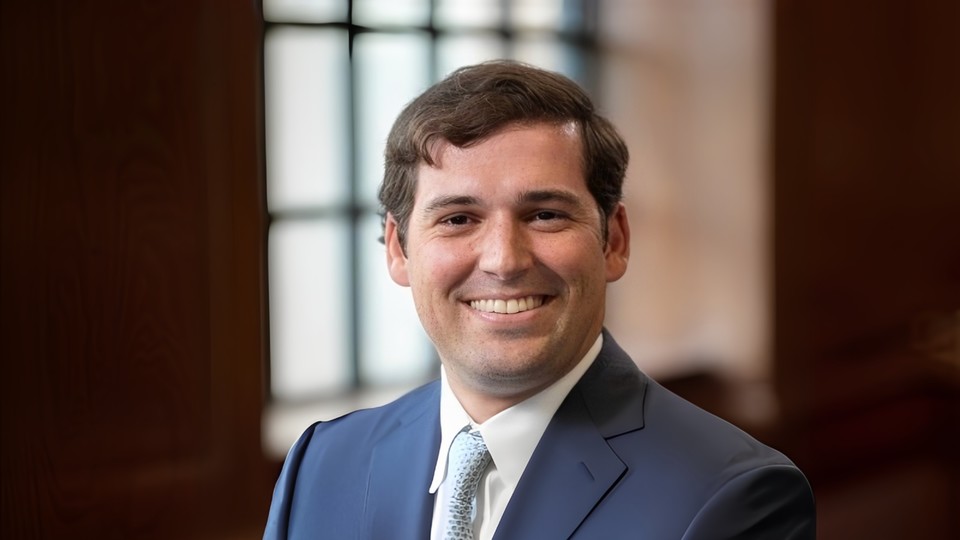
PREVIOUS CAREER AND CURRENT INTERNSHIP
Previous position before MBA:
- Title: Graduate Engineer - Land Development
- Company: LJA Engineering, Inc.
- Location: Houston, TX
Summer Internship:
- Title: Acquisitions Intern
- Company: Lionstone Investments
- Location: Houston, TX
HOW DID YOU SECURE YOUR INTERNSHIP?
I discovered Lionstone at an on-campus info session and connected with their team afterward. I reached out and had coffee chats with two different members from the acquisitions team. I applied for the internship position that was posted through OwlCareers and was invited to interview after winter break. I studied Wallstreet Prep real estate technical questions and practiced behavioral interview questions. Although I didn’t have any real estate experience or finance experience outside of my first semester at Rice, my preparation paid off during the interview process.
WHAT ARE YOUR RESPONSIBILITIES DURING THE INTERNSHIP?
My role as an intern initially involved a lot of training and informational sessions with various teams and managers at Lionstone. The goal of these sessions was to give us (the interns) a better understanding of Lionstone’s role as a full-service, real estate investment manager and explain the firm’s fiduciary duties to our investors. These sessions gave me a much better understanding of how the firm operates internally and how Lionstone generates revenue for their clients and themselves. My responsibilities are to assist the acquisitions team in underwriting any new deals, gathering market data from comparable properties, and assisting wherever I can be helpful. I am currently working on a summer research project regarding potential investment opportunities for Lionstone’s upcoming fund.
WHAT DEPARTMENT IS YOUR INTERNSHIP WITH?
I work on the Acquisitions team.
HOW DID YOUR MBA COURSEWORK PREPARE YOU FOR THIS INTERNSHIP?
Having no finance background before starting my MBA, core finance with James Weston was a pivotal part of my overall learning experience at Rice. Professor Weston taught us the frameworks to think about finance concepts that proved to be extremely useful in electives, like Applied Finance, Economic Environment of Business, and Real Estate Finance. Without these courses, it would have been much more difficult to understand Lionstone’s investment strategies, asset management practices, portfolio management, as well as the macro-economic factors currently affecting the real estate market.
HOW DOES THE INTERNSHIP ALIGN WITH YOUR CAREER GOALS?
When I chose to pursue an MBA, my short-term goal was to pivot from civil engineering into a career in real estate on the principal side of the business. This internship directly aligns with my long-term career goal of being a real estate fund manager because Lionstone is on the “buy side” of real estate investment deals.
HOW DO YOU THINK THE INTERNSHIP WILL HELP YOU WITH YOUR MBA STUDIES OR FUTURE CAREER?
This internship has given me exposure to the private equity business, and it has shown me different ways to assess risk in a real estate investment opportunity. It has shown me the career path of an investment manager, and it will provide me with an even stronger foundation for my real estate and finance electives next year.
WHAT IS YOUR FAVORITE PART OF YOUR INTERNSHIP EXPERIENCE?
My favorite part of the internship is sitting in on high-level meetings with the acquisition team and valuation committee. I really enjoy listening to how the acquisition team thinks about prospective deals. Also, it has been very intriguing to listen to the valuation committee work through difficulties and constraints associated with various assets under management.
WHAT ADVICE DO YOU HAVE FOR PROSPECTIVE STUDENTS?
Make sure to talk to as many people as possible from the industry you want to enter during your fall semester. Even if you don’t think you would be interested in working for that company, there is a lot of information you can soak up from a 30-minute conversation. Don’t be afraid to ask questions! However, your questions should indicate that you have researched their firm, and you have a basic understanding of what they do.
Sam Stephens is a Full-Time MBA student in the Class of 2025.
The Rice MBA
Resourceful Rice business school programs earn four top 10 rankings
MBA programs at Rice University’s Jones Graduate School of Business have landed two top five rankings in The Princeton Review’s annual list of the country’s best business schools.

Boxing, Business and Beyond: DeRae Crane, PMBA '22
Discover how a blend of personal motivation, MBA discipline and rigorous training helped DeRae Crane make his final Olympic run a reality.

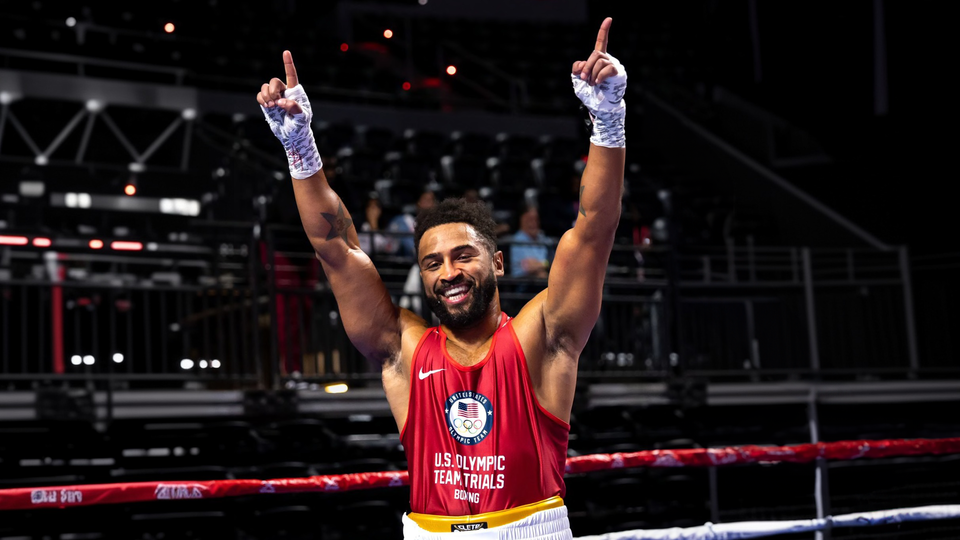
WHAT MOTIVATED YOU TO COME OUT OF RETIREMENT FOR ONE LAST OLYMPIC RUN?
The idea of a final run had been in the back of my mind for many of the years that I was retired. But I stayed focused on my professional career and put my energy toward all the other things I had sort of neglected in my quest to become an Olympian. Most importantly, my 15-year-old son Solomon was a huge factor. He’s been wrestling competitively for a few years now, and watching him compete pumps me up. We talk to our children about all the things they should do or can do, but parents don’t always do a great job modeling the behaviors in real time. The opportunity to show my son in real time what it means to go for the thing you desire most was one that I simply could not pass up.
HOW DID BALANCING YOUR MBA STUDIES AND FULL-TIME WORK AT BP PREPARE YOU FOR THIS JOURNEY? WHAT LESSONS FROM YOUR MBA HAVE BEEN MOST APPLICABLE TO YOUR BOXING?
As you can imagine, working full time and training six hours a day can be a bear. I hadn’t decided to come back until November of 2022, but my life was still fairly regimented after graduating in May of '22. Business school forces you to be creative and communicative with your colleagues to work around each other's schedules. It had become second nature to optimize my workday so my job, training and competition schedules didn’t conflict — or were at least managed to an 80% solution.
An MBA from Rice Business is hard. I like to call that first year a “bloodbath.” I certainly questioned whether I could pull off working full time and my course load successfully. But you don’t go to business school because it’s easy; you go to challenge yourself. And that was my mindset during my final Olympic run. I wasn’t looking for easy; I wanted to see how much I could get out of myself and finally put myself on an Olympic team at 38.
WHAT WERE THE MOST CHALLENGING PARTS OF YOUR COMEBACK, AND HOW DID YOU OVERCOME THEM?
I had already boxed for 20 years and served in the military for 12 years when I decided to make a comeback. My body has not been gently used. Add jumping out of airplanes and a motorcycle accident — I had to overcome any doubt that my body could physically hold up with all the wear, tear and injuries. In addition, I hadn’t thrown or taken a single punch in seven years. I just didn’t know what I was capable of anymore. But! I believed I could, and once I believe I can do something, the only thing left to do is to find out by trying. Now I know!
HOW DID IT FEEL STEPPING BACK INTO THE RING FOR THE FIRST TIME?
Training had gone well, but there’s nothing like the heat of competition. My first win back ended with a stoppage. Not only was that extremely satisfying, but it was also a huge relief. I still belonged at the top and had made the right decision to come out of retirement at 37. Looking back, I got stoppages at each of the three competitions I participated in, including a devastating knockout at the 2024 Olympic Team Trials.
HOW HAS YOUR BOXING JOURNEY INFLUENCED OTHER AREAS OF YOUR LIFE, SUCH AS YOUR CAREER AND PERSONAL GROWTH?
The majority of people who watch boxing don't understand the mental and physical preparation required to perform. Boxing is a thinking person’s game (though it’s not a game). You're taking what you have and employing it in a way that you believe will lead you to victory. And over the course of a five- or six-day tournament, you must make many different adjustments to get those wins. I believe I have an edge over most people I meet because few have ever pushed themselves to their limits, unwilling to play at the edge. Boxing has been the one constant in my life. I boxed in college, in the Army and while working for a large multinational corporation. And I've been a national champion and Olympic hopeful during each of those stages of my life.
WHAT ADVICE DO YOU HAVE FOR THOSE BALANCING BIG DREAMS WITH MULTIPLE DEMANDING COMMITMENTS?
Decide what you desire most! If it's what you desire most, don’t leave it undone. Fear often enables us to talk ourselves out of things, especially if we’re smart! Talk yourself into it, not out of it. Your big dreams will require more from you. Over my long career, I’ve learned that it’s not the achievement itself that gives value but the process! It’s about becoming everything you need to achieve that dream. Even if you don’t achieve it, you still become something valuable. There’s no losing! Don’t leave this world with regrets, believing you could've done something. Know, one way or the other! In all likelihood, you’ll gain more than you ever could have imagined.
HEAR MORE OF DERAE'S STORY ON OUR OWL HAVE YOU KNOW PODCAST.
DeRae Crane is an alum in the Professional MBA Class of 2022.




